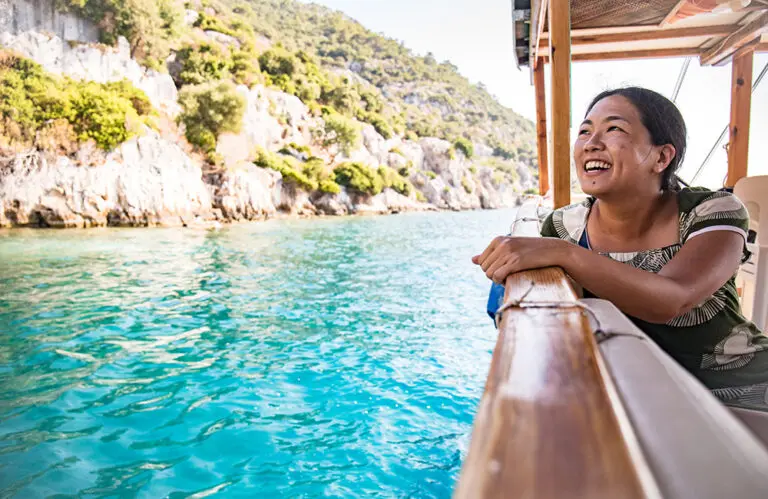Not only is France the most visited country in the world, but it is also leading the pack on the sustainable tourism front.
The European country has long lured visitors with its offer of delicious cuisine, a strong art and culture offering as well as spectacular natural beauty. In 2016, France was again the world’s most popular tourist destination, despite a 2.2 percent decline in arrivals.
The destination welcomed 82.6 million foreign tourists to metropolitan France and roughly 400,000 to the overseas départements and territories.
But while all those tourists are good news for the economy, they can also take their toll.
Over recent years, France, like many other popular countries, has been showing signs of “overtourism” – a phenomenon that has become a particularly hot topic over the last year.
In places as far afield as Peru and Thailand, important sights, many of which are considered natural and historical wonders, are being physically impacted by sky-rocketing tourist numbers.
What is being done to combat overtourism?
Venice’s tourism board last year launched the #EnjoyRespectVenezia campaign telling tourists how to behave while exploring the city.
The year also saw Peru limit access to national treasure Machu Picchu to minimise the tourism impact.
However, in many places, more needs to be done to safeguard the future of those very sights that fuel the tourism industry.
But France is well and truly on the case, according to The Economist’s Sustainable Tourism Index.
The study of 10 countries, not including Australia, recently highlighted France as doing the most to preserve its social, cultural and environmental assets. It was closely followed by Germany with the UK trailing in third place.
“Of the ten countries included in the index, only France and Germany have taken concerted and sustained action at the national level to develop policy, set targets and monitor results,” the study said.
So what are France and Germany actually doing?
The report highlighted French regulations that set specific targets and guidelines in areas such as carrying capacity and tourist transport as major wins.
It also highlighted successes such as the management of the delicate Lascaux Cave in the Dordogne region of southwestern France which is home to some of the world’s oldest and best-preserved examples of Palaeolithic cave art.
Meanwhile, Germany did well in delivering coordinated action to improve environmental sustainability in tourism. For example, the country has mandatory environmental impact assessments (EIAs) to measure, monitor, and reduce water and energy usage in the industry, and to reduce emissions of greenhouse gases.
What else needs to be done?
Despite progress on a number of fronts, there is still much work to be done, even in the countries which came out on top.
“In no country, say experts interviewed for the study, is sustainable tourism policy sufficiently integrated between national, local and regional levels,” the report said.
That’s where NGOs and industry groups can play an important role through projects like accreditation schemes, training programs and advocacy campaigns.
Tourism’s role in contributing to climate change was also highlighted as a major concern by the report. The industry is estimated to contribute around 5% of worldwide greenhouse gas emissions with that figure expected to grow.
It’s more recognition for France’s sustainability efforts
It’s not the only good news story from France.
Long considered one of the world’s top gastronomic destinations, the destination also topped a list of the world’s most sustainable food destinations late last year.
That’s thanks to efforts such as its National Pact against food waste which dates back to 2013.
Large restaurants are expected to recycle left-over food and allow their customers to take away doggy bags if they so wish. They are also obliged to give any unsold food to food banks or charities.










